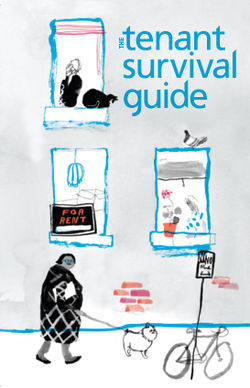Tenant Survival Guide: Difference between revisions
Jump to navigation
Jump to search
No edit summary |
No edit summary |
||
| Line 30: | Line 30: | ||
*'''[[Other Resources for Tenants]]''' | *'''[[Other Resources for Tenants]]''' | ||
**[[Other Resources for Tenants#Government|Government]]{{·}} [[Other Resources for Tenants#Tenant services|Tenant services]]{{·}} [[Other Resources for Tenants#Online resources|Online resources]] | **[[Other Resources for Tenants#Government|Government]]{{·}} [[Other Resources for Tenants#Tenant services|Tenant services]]{{·}} [[Other Resources for Tenants#Online resources|Online resources]] | ||
{{Tenant Survival Guide Navbox}} | {{Tenant Survival Guide Navbox}} | ||
Revision as of 23:10, 19 December 2018

|
|
This is a Clicklaw Wikibook, a collaborative, plain language legal publication that is updated as a wiki and can be printed or downloaded. |
|
|
Download the full Wikibook in PDF. |
|
|
Customize: take what you need, leave the rest (learn more). |
The Tenant Survival Guide, produced by the Tenant Resource & Advisory Centre (TRAC), provides basic education on residential tenancy law in British Columbia. TRAC is a non-profit organization that promotes the legal protection of tenants by providing information, education, support, and research on residential tenancy matters.
Contents
- Introduction
- Preparing to Rent
- Finding Rental Housing
- Entering a Tenancy
- Moving In
- Rent
- Living in Peace When Renting
- Repairs and Services
- Evictions
- Moving Out
- Dispute Resolution
- Other Resources for Tenants
| ||||||||||||||||||||||||||||||||||||||